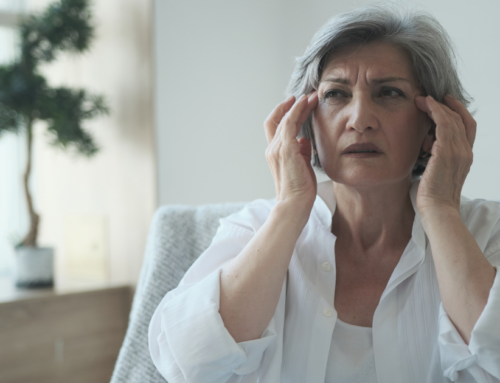Enhancing Alzheimer’s Care with In-Home Caregivers and Light Therapy
Alzheimer’s disease, a prevalent form of dementia, affects millions worldwide, leading to memory loss and various distressing symptoms. Recent research from UVA Health has shed light on how enhanced light sensitivity in Alzheimer’s patients may worsen symptoms in the late afternoon, causing “sundowning,” and disrupting sleep patterns, potentially hastening disease progression. Sundowning means that an Alzheimer’s patient may feel restless, agitated, irritable, or confused when the daylight may begin to lessen or fade at the end of the day. This newfound understanding of the disease’s impact on the biological clock holds significant promise for treatment development and symptom management, offering renewed hope to patients and their in home caregivers.
Using Light Therapy to Manage Symptoms
In home caregivers face significant challenges in managing the erratic sleep patterns resulting from altered circadian rhythms in Alzheimer’s patients. The body’s natural daily cycle, the circadian rhythm, becomes disrupted, leading to disturbed sleep and exacerbating symptoms during evenings and nights. Light therapy emerges as a powerful tool to effectively manage these disruptions. By carefully controlling the type and timing of light exposure, in home caregivers can help regulate sleep patterns and alleviate the severity of Alzheimer’s symptoms in the evening, providing much-needed relief and comfort to their patients. This can help improve schedules and sleeping cycles.
Understanding Alzheimer’s Effects on the Biological Clock
UVA Health’s recent study utilized a mouse model of Alzheimer’s to gain insights into the disease’s impact on the biological clock. Researchers observed the mice’s behavior by inducing “jet lag” through alterations in light exposure. To their surprise, the Alzheimer’s mice adapted much quicker to a six-hour time change compared to the control group, indicating heightened sensitivity to light changes. Interestingly, this rapid adaptation did not appear to be linked to brain inflammation or the presence of abnormal protein tangles known as “mutant tau,” common in Alzheimer’s patients.
The Role of the Retina and Future Prospects
The research findings suggest that the retina may play a pivotal role in the enhanced light sensitivity observed in Alzheimer’s patients. This revelation paves the way for further investigation and potential breakthroughs in treatment, management, and even prevention. By controlling the type and timing of light exposure, researchers hope to reduce circadian disruptions in Alzheimer’s, ultimately leading to the development of light therapies that can effectively slow down the progression of the disease.
The Crucial Role of In Home Caregivers
In home caregivers hold a vital position in the lives of Alzheimer’s patients. As the disease progresses, patients increasingly rely on their caregivers for daily activities, including maintaining a stable sleep schedule. With the promise of light therapy in regulating sleep patterns and alleviating symptoms, in home caregivers can adopt this approach to provide essential comfort and support to their clients.
Moreover, understanding the disease’s impact on the biological clock empowers caregivers to implement preventive strategies. Research shows that poor sleep quality in adulthood is a risk factor for Alzheimer’s, as it hinders the brain’s natural cleansing process. By promoting healthy sleep habits and ensuring appropriate light exposure, caregivers may reduce the risk of disease progression, further enhancing the quality of life for Alzheimer’s patients.
Alzheimer’s disease presents unique challenges for patients and their in home caregivers. The latest research on light sensitivity and circadian disruptions in Alzheimer’s brings new hope for innovative treatments and symptom management. Light therapy holds promise in regulating erratic sleep patterns and mitigating the severity of “sundowning” symptoms. In home caregivers play an indispensable role in implementing these therapies and promoting healthy sleep habits to support their loved ones in their battle against Alzheimer’s.
As research continues to deepen our understanding of the disease’s effects on the biological clock, the potential for preventative strategies arises, offering hope for a brighter future for those affected by Alzheimer’s disease. Together, with the unwavering dedication of in home caregivers and ongoing research, we strive to improve the lives of Alzheimer’s patients and make a meaningful impact in the fight against this debilitating condition.
Sources:






